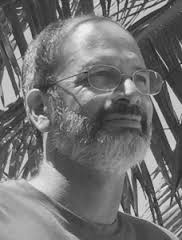This is the time of year that people talk about resolving to live a better life. I’ll admit I get caught up in the whole resolution thing myself. Last year, I stopped drinking diet soda in the name of eliminating artificial sugar. This year, I aspire to make more time for fitness.
We all know most resolutions are forgotten by the end of the first quarter. Why is that? Perhaps the secret to changing what you do is asking yourself why you do it. As part of a 2016 strategic planning meeting for a long-time client, we decided to invite a cultural anthropologist, Dr. Robbie Blinkoff, to help us shake up the creative process by asking this fundamental question.

We live in a big data world. The facts are there to support every decision we need to make, both personally and professionally. In fact, we are usually rewarded for trusting data over intuition. In the case of my fitness goal, the “Quantified Self” movement and the proliferation of fitness trackers is a perfect example. In fact, this category of wearables is one of the hot topics this week at the Consumer Electronics Show.
I am not about to argue that analytics aren’t meaningful. Metrics have dramatically improved the field of communications. We’re now able to justify our recommendations and demonstrate our effectiveness in a way I could never have imagined 12+ years ago when I started RoseComm.
What we wanted Dr. Blinkoff to help us explore is this: What do we risk losing in our work lives when we reward thinking and analysis over intuition? Here are some ideas to consider:
- Direct experience
- Relationships
- Truth
- Presence
- Intentionality
There’s that word: intentionality. Why we do what we do. To understand what motivates our actions, Dr. Blinkoff believes you need to identify your learning style — how you come to know the world. His approach is based in part on the teachings of David Kolb.
He led us through an exercise to understand our individual styles and what that means for each of us in a big data culture. He asked us to look at a series of word sets and to rank them based on which best characterizes our behavior. The first set, for example, was: involved, tentative, discriminating, practical.
When we were done, we charted our numbers against a profile and shared them with the group. It was amazing to see how much the people in the room learned about each other. These are people who have worked together for years. We saw “involved” personalities called out for not allowing others to participate and “discriminating” thinkers exposed for making decisions without checking their “gut”. Even the “tentative” people contributed!
Unlike many assessments that companies do, identifying your learning style is not about understanding your strengths so you and your supervisors can make the most of what you do best. Instead, Dr. Blinkoff wants people to lean in to their weaknesses. His point is that all learning styles are valid and they need to work together to ensure a healthy, productive organization.
I learned a lot about myself and my own colleagues that day. And it was a perfect set-up for what turned out to be our best brainstorm session ever with this client.
The next time you’re asked to sit in an ideation session, stop and ask yourself how well you know the people in the room. How well do you know yourself? The answers to these questions will lead to better work experiences and outcomes. They might even help you keep that New Years resolution!
Want to learn more about our work with Dr. Blinkoff? Email me at rostmann@rosecomm.com.
